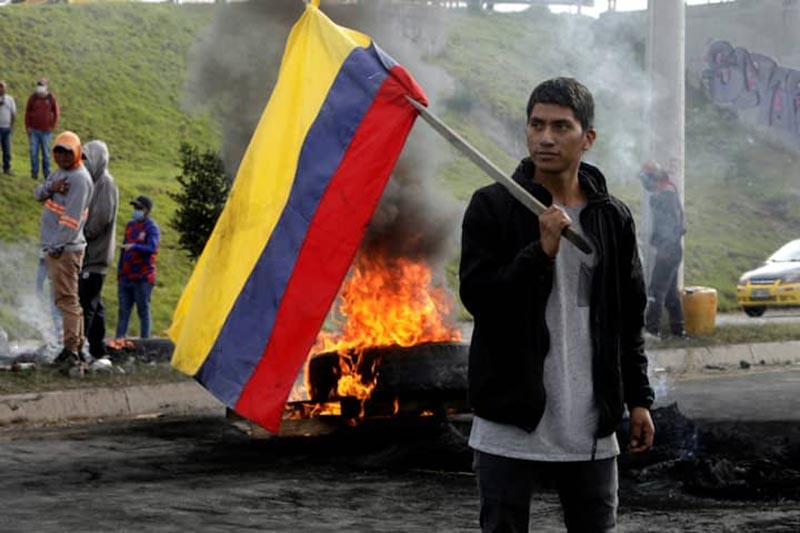QUITO, (Reuters) – Ecuador’s government and indigenous leaders met yesterday for the first formal talks since mass protests began in the country two weeks ago, legislature head Virgilio Saquicela said.
The sometimes-violent demonstrations, which broke out on June 13 driven by indigenous calls for lower fuel and food prices, among other demands, have led to at least six civilian deaths and multiple attacks on security forces.
The protests have worsened President Guillermo Lasso’s already-adversarial relationship with the national assembly, where lawmakers have blocked his major economic proposals as he has struggled to contain rising violence he blames on drug gangs.
The assembly was set to meet last evening at the request of some opposition lawmakers to debate Lasso’s removal from office, though the group does not appear to have the votes it would need to approve such a measure.
Despite some government concessions, including subsidized fertilizers, debt forgiveness and budget increases for health and education, formal talks between Lasso’s administration and protesters, led by indigenous group CONAIE, had been stalled for days even as confrontations at marches continued.
“This dialogue has begun, but there haven’t been any commitments,” Saquicela told journalists. “We as the assembly have asked … for tensions to be lowered, for fewer confrontations while a solution is found.”
CONAIE leader Leonidas Iza and several government ministers attended, Saquicela added.
Iza said indigenous groups would partially open roads blocked during protests to allow food into the capital, where residents have complained of low supplies, but would remain in Quito until they get a satisfactory answer from Lasso.
“We are not going to leave the spilled blood of our brothers here. We came with a purpose,” Iza told demonstrators.




